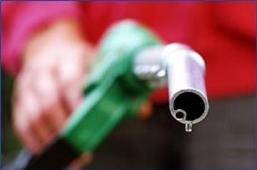 | « Back to article | Print this article |
 On January 17, when the government decided to allow state-owned oil companies to sell diesel at market price to bulk consumers, companies in the alternative energy space saw the opening of an opportunity.
On January 17, when the government decided to allow state-owned oil companies to sell diesel at market price to bulk consumers, companies in the alternative energy space saw the opening of an opportunity.
Promethean Spenta Technologies, an Indo-US joint venture start-up, began discussing its milk chillers operating on a thermal battery (against diesel generators) to companies such as Amul, Mother Dairy and Hatsun Agro Products.
A US-based energy storage systems maker, Deeya Energy, offers alternative energy storage solutionn for telecom towers, hospitals, railway signalling and rural banking sectors, by replacing their diesel generators.
After last week's price changes, diesel for bulk consumers buying from depots will cost a little over Rs 10 a litre more than what is sold at retail outlets.
"Running of diesel generators is capital-intensive and with prices climbing up, our costs have increased. Since deregulation of diesel will happen in the next one year, we have decided to go for an alternative energy option," said Rahul Kumar, managing director, Amul.
Amul collects 2.5 million litres of milk daily from dairy farmers.
It has started using milk chillers operating on thermal batteries instead of diesel generators at a few facilities.
Power cuts are intermittent in rural India and if milk is not chilled immediately, it impacts the quality.
Sam White, founder, Promethean Spenta Technologies, said, "In rural areas, dairy farmers are never sure how long electricity supply will last.
"Our milk chillers can bring the cost per unit down by half for users chilling thousands of litres a day, assuming they get eight-nine hours of power.”
Chennai-based Hatsun Agro procures two million litres milk daily from dairy farmers.
It has installed two chillers so far and placed an order for around 100 more.
A chiller costs around Rs 450,000.
"With chillers that run on a thermal battery, we can save to the tune of Rs 6 a unit as compared to diesel gensets,” said R G Chandramogan, chairman and managing director.
Telecom
Another diesel application being impacted by high cost is telecommunication.
Telecom towers are run on gensets to provide vital connectivity.
According to the Tower and Infrastructure Providers Association, the industry consumes about two billion litres of diesel every year and this is likely to go up to three bn litres, with the increasing teledensity in rural India; about 60